Elastic Observability 8.14: New feature for SLO, AI Assistant, and .NET for Universal Profiling
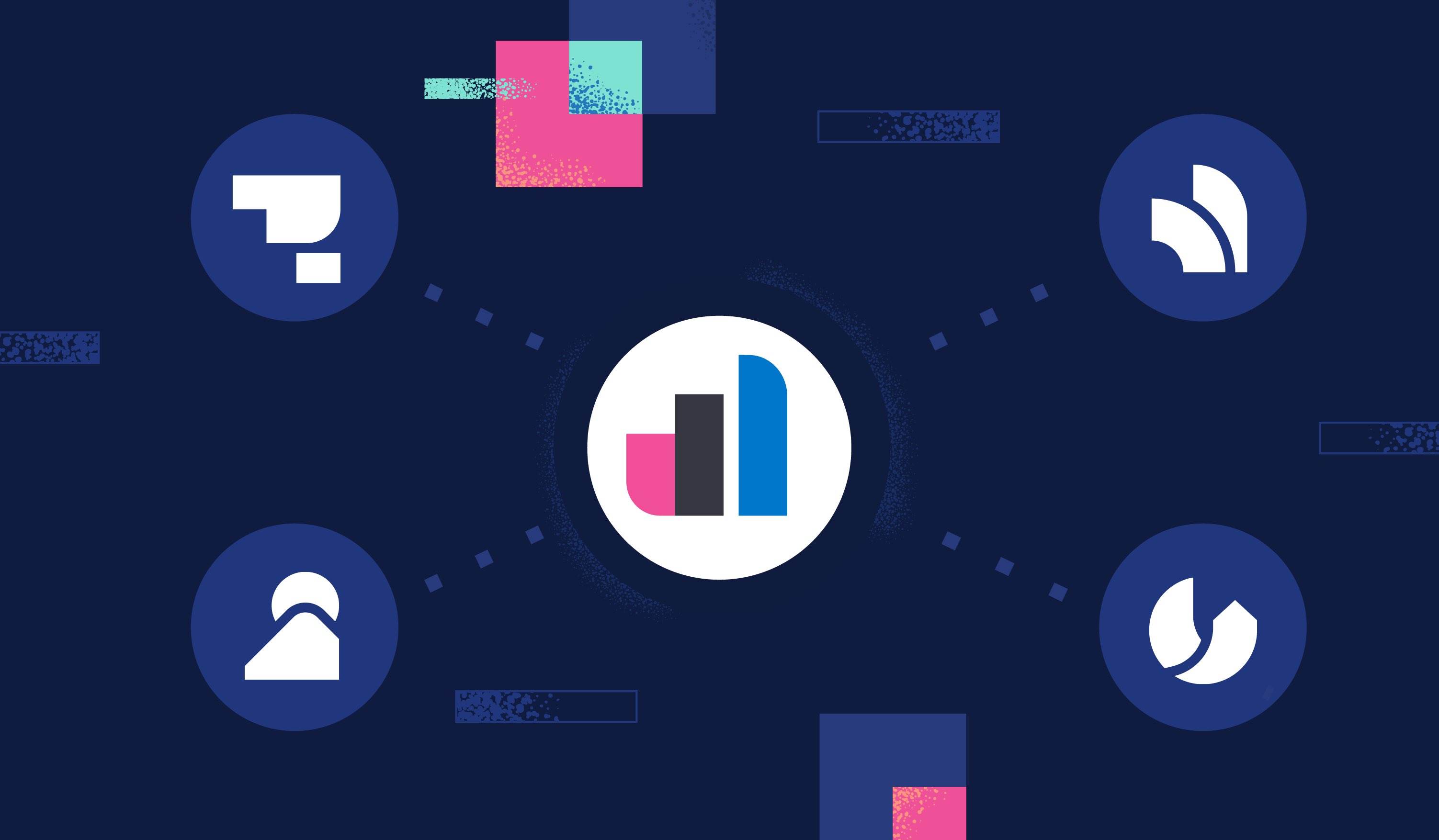
Elastic Observability 8.14 announces the general availability (GA) of key Service Level Objective (SLO) management capabilities, additional enhancements to the Elastic AI Assistant for Observability, alerting improvements, and Universal Profiling for .NET.
Enhanced SLO management capabilities:
Federated SLOs — View all of your SLOs across cross-cluster search (CCS), which allows for efficient management views of your Observability data across your organization.
SLO group embeddable — This allows users to take a group of SLOs and add them to a custom dashboard. For example, users can take group SLOs on Tag for a business case and then add them to the dashboard for that business service.
Improved alert details for SLO burn rate — The alert details page provides users content about alerts, what might have caused the alert, and information on alert history. In 8.14, we added to the alert details pages for SLO alerts to provide more content (including embedded AI Ops) depending on the Service Level Indicator (SLI) type.
SLO burn rate alert dependency notification — SLO burn rate alerts can be noisy for end-to-end services that have service dependencies that are at the root cause. This will allow users to suspend the notification of burn rate alerts if there is a dependent service that is the root cause.
New Synthetics availability SLI — Introducing a new SLI form dedicated to Synthetics availability. Before, users could do Synthetics with time slice metric SLI, but this SLI utilizes Synthetics specific fields and makes it much easier to create an SLI. Synthetics is a great data source for SLO.
Enhanced AI Assistant capabilities:
Elastic AI Assistant for Observability context-based suggestions: Now GA, with AI Assistant's context-based suggestions, SREs can quickly identify and prioritize critical tasks, reducing response times. The addition of contextual insights on Observability Alert Details pages provides deeper understanding and aids in diagnosing issues, allowing SREs to address problems proactively.
AI Assistant interactions via API calls: Now in technical preview, interaction via API calls offers flexibility and enables SREs to integrate AI Assistant into automated workflows and custom scripts to streamline operations.
AWS Bedrock Anthropic Claude 3 model support: Now GA, the Anthropic Claude 3 model, with its extended context window and JSON functions, provides improved accuracy and contextual comprehension, crucial for analyzing complex data. These enhancements collectively help SREs maintain service reliability and optimize incident response.
Alerting improvements included in the release make it easier to quickly understand the alert and its context, reducing MTTR. An alert details view is now available for every Observability alerting rule type, showing critical information, such as when the alert triggered, its current state, and a history of previous occurrences. Improved alert flyouts offer better at-a-glance information about the when, where, and what about the alert with clickable links to help navigate directly to impacted services or infrastructure.
Universal Profiling for .NET will now be supported alongside all major languages like PHP, Python, Java (or any JVM language), Go, Rust, C/C++, Node.js/V8, Ruby, Perl, and Zig. This is the first of its kind in the industry to profile .NET versions 6, 7, and 8 without instrumentation using an eBPF-based profiler.
Elastic Observability 8.14 is available now on Elastic Cloud — the only hosted Elasticsearch offering to include all of the new features in this latest release. You can also download the Elastic Stack and our cloud orchestration products — Elastic Cloud Enterprise and Elastic Cloud for Kubernetes — for a self-managed experience.
What else is new in Elastic 8.14? Check out the 8.14 announcement post to learn more >>
New SLO management capabilities
Federated SLOs over cross-cluster search (CCS)
Administrators can now set up SLOs in local clusters and view them in a single "read" cluster using cross-cluster search. This improves performance in the read cluster, saves money by allowing transforms to be done closer to where the data lives, and provides an efficient way for our multi-cluster customers to centralize their SLO views.
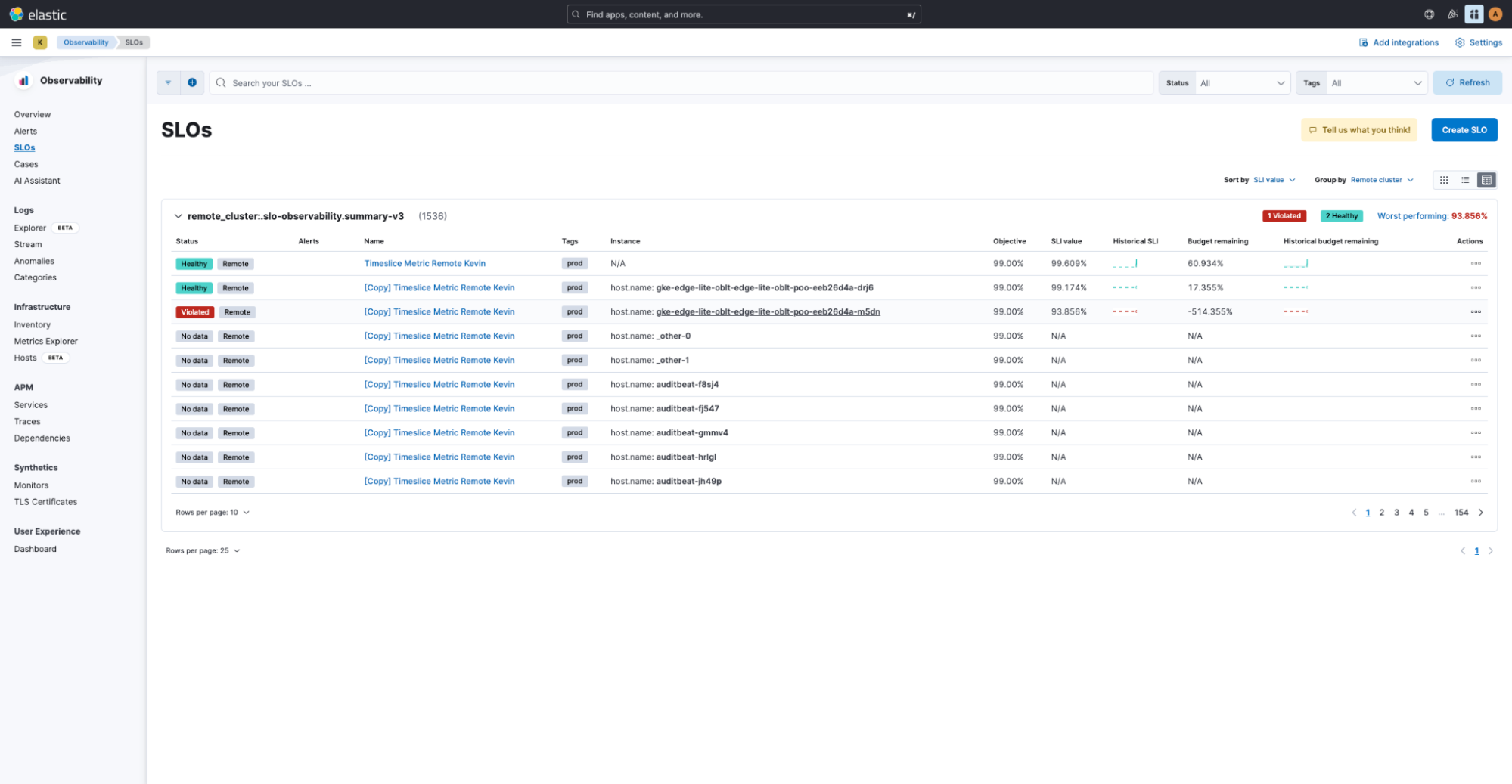
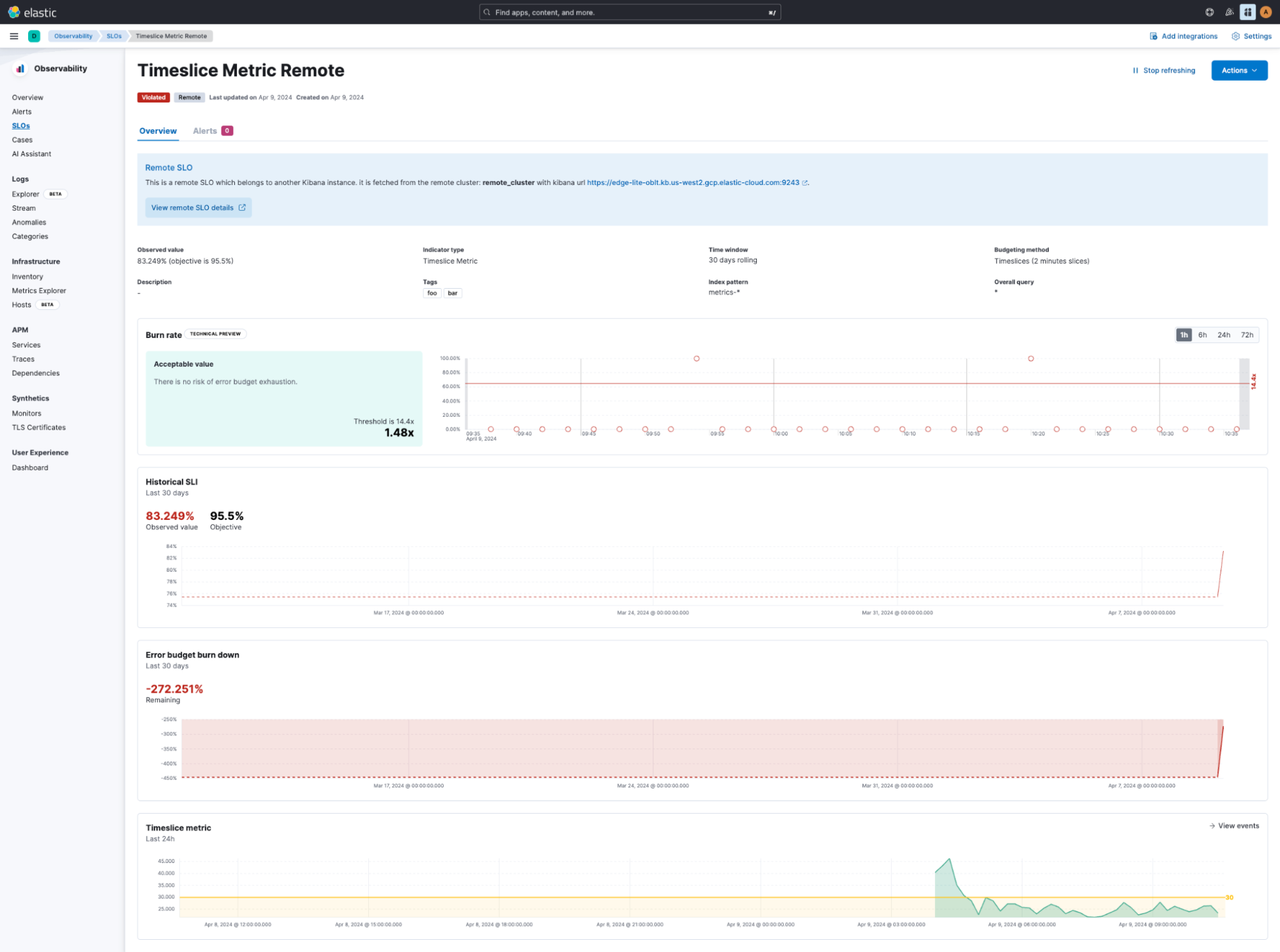
Grouped SLOs embeddable
The SLO Overview chart can now show a group of SLOs. Multiple SLOs can be shown in a dashboard, grouped by SLO status, tag, or SLI type.
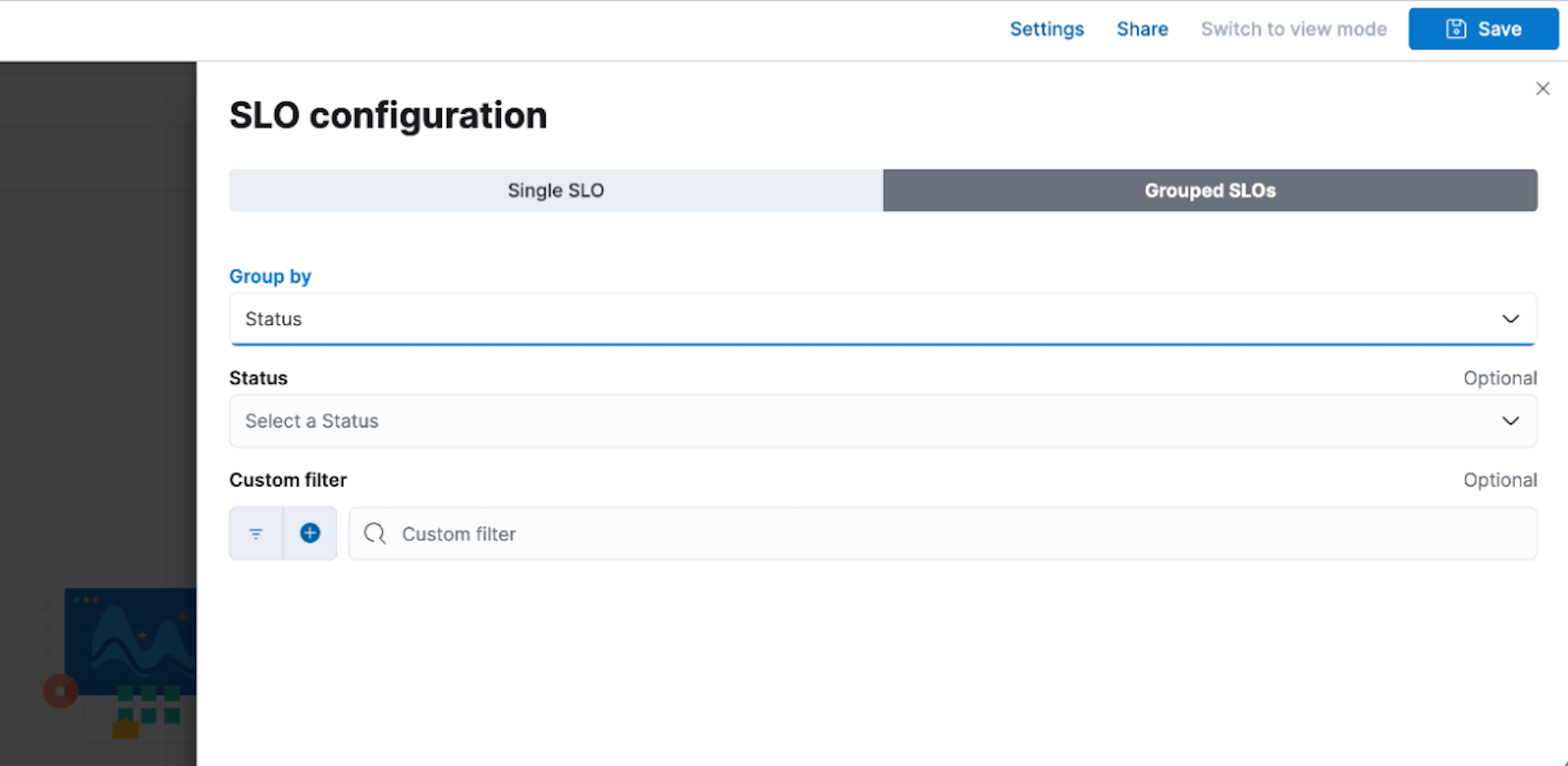
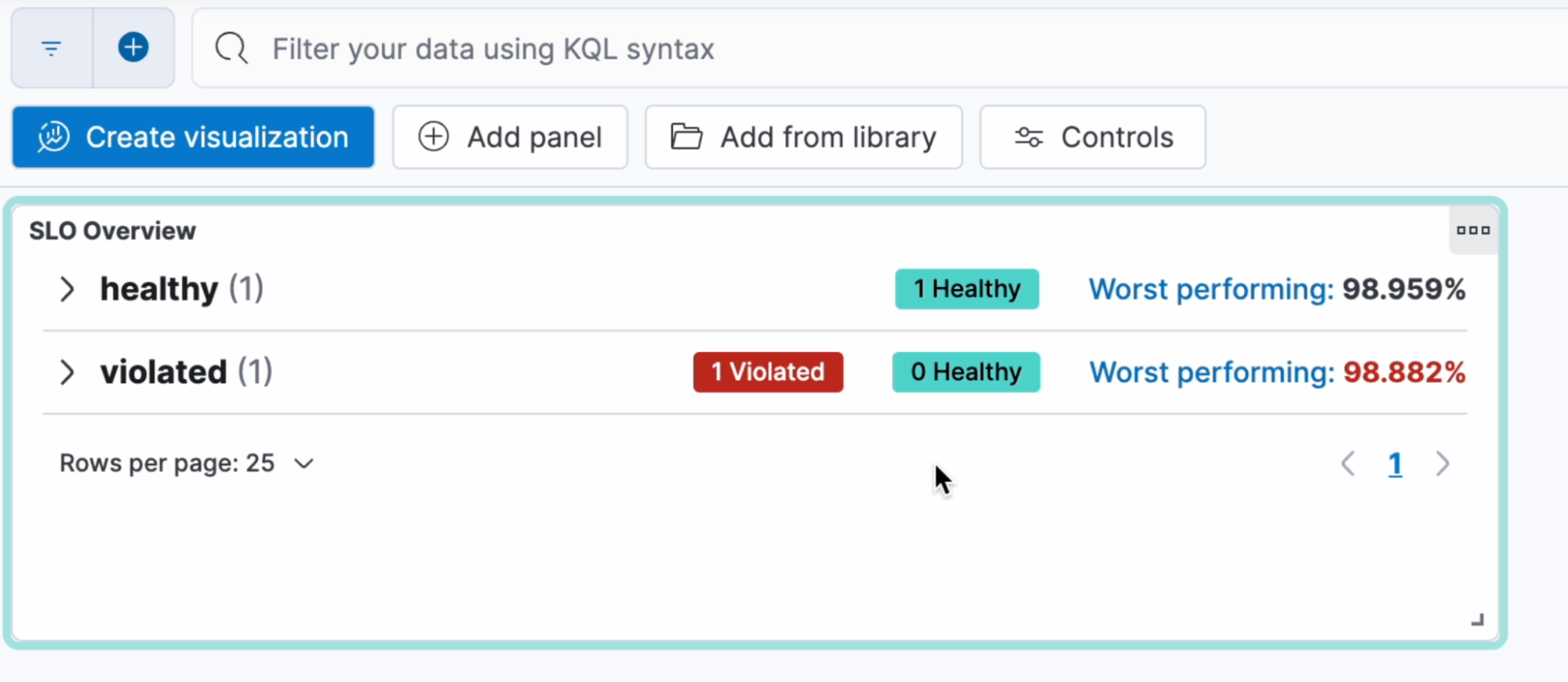
SLO burn rate alert dependency notification
When an SLO is starting to burn through its error budget, but it is because of another service that it is dependent on, you want to make sure that the notifications are sent for the dependent service but not for everyone else. SLO burn rate alerts can be noisy for end-to-end services that have service dependencies that are at the root cause. Now in 8.14, you can set up the SLO burn rate alerts to suspend the notification of burn rate alerts if there is a dependent service that is the root cause.
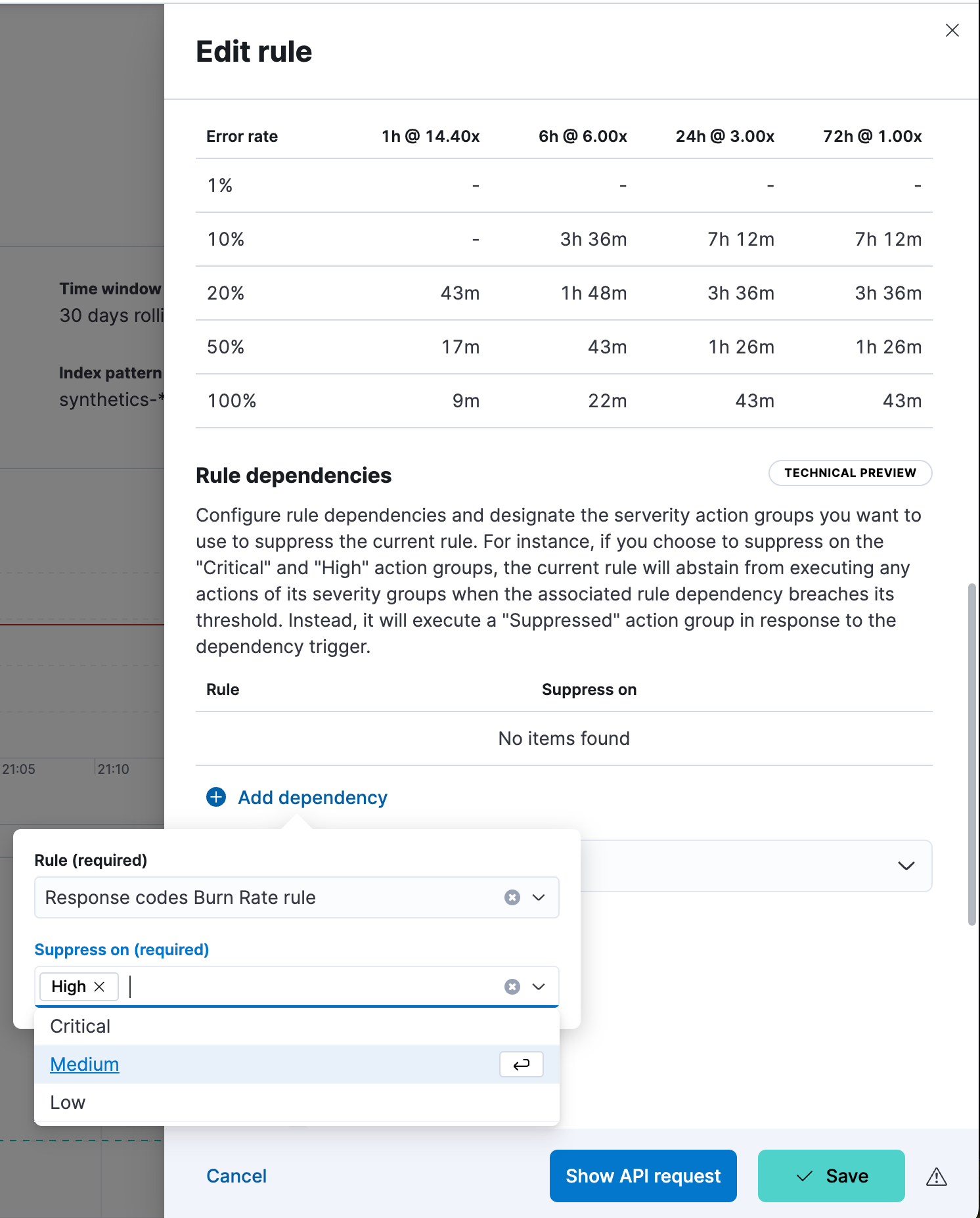
New Synthetics availability SLI
Introducing a new SLI dedicated to Synthetics availability. This will make it easier to convert your Elastic Synthetic monitors to availability SLOs with the same options that were used to set up the monitor. Synthetics is a great data source for availability monitoring.
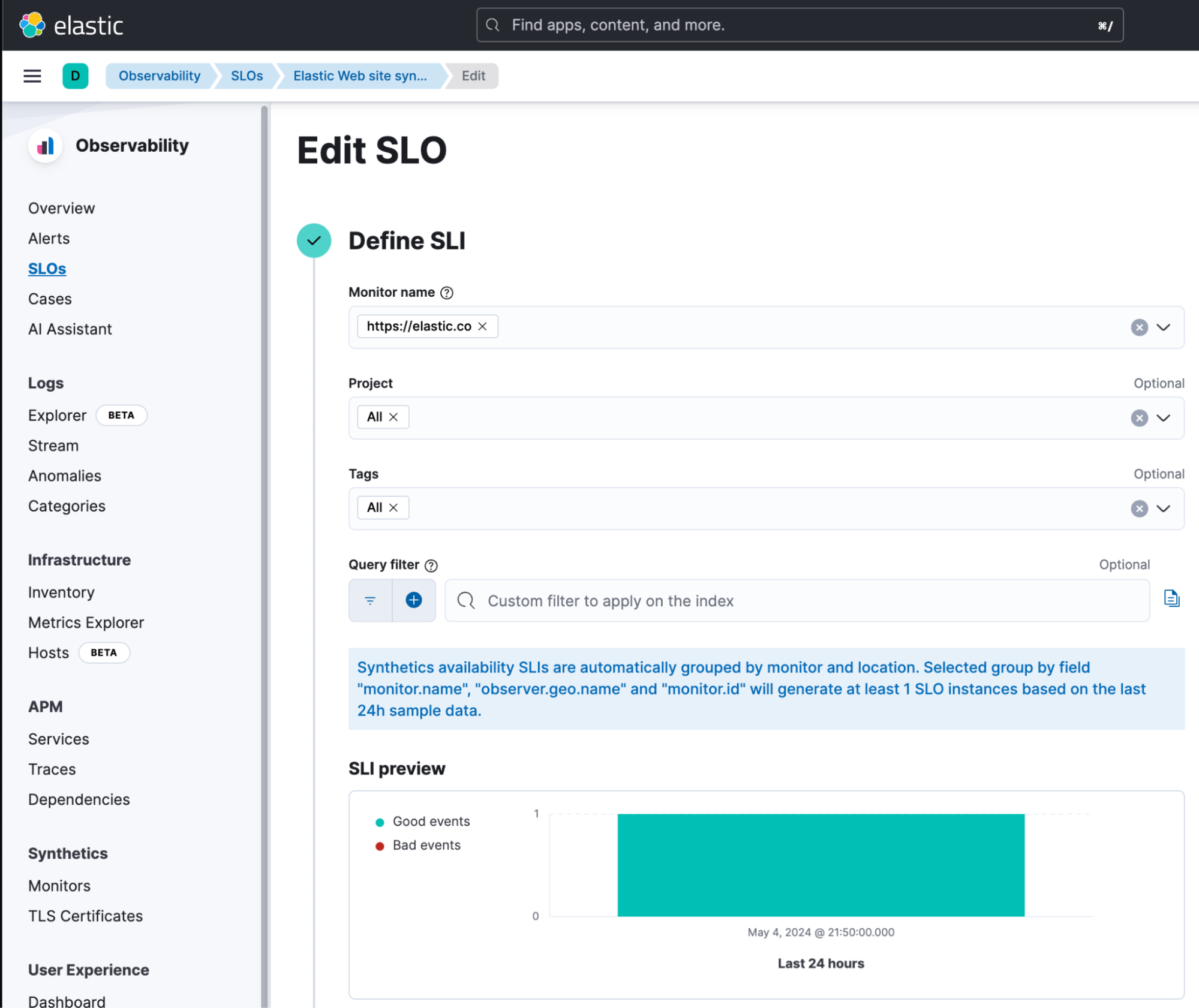
Elastic AI Assistant for Observability enhancements
AI Assistant context-based starter prompts
We added starter prompts to help new users with their onboarding on the AI Assistant. Default prompts can be overridden by contextual ones set by the current application. Starter prompts provide hints to the user on how to use the AI Assistant like "Are there any open alerts?" These prompts can be application- or data-specific.
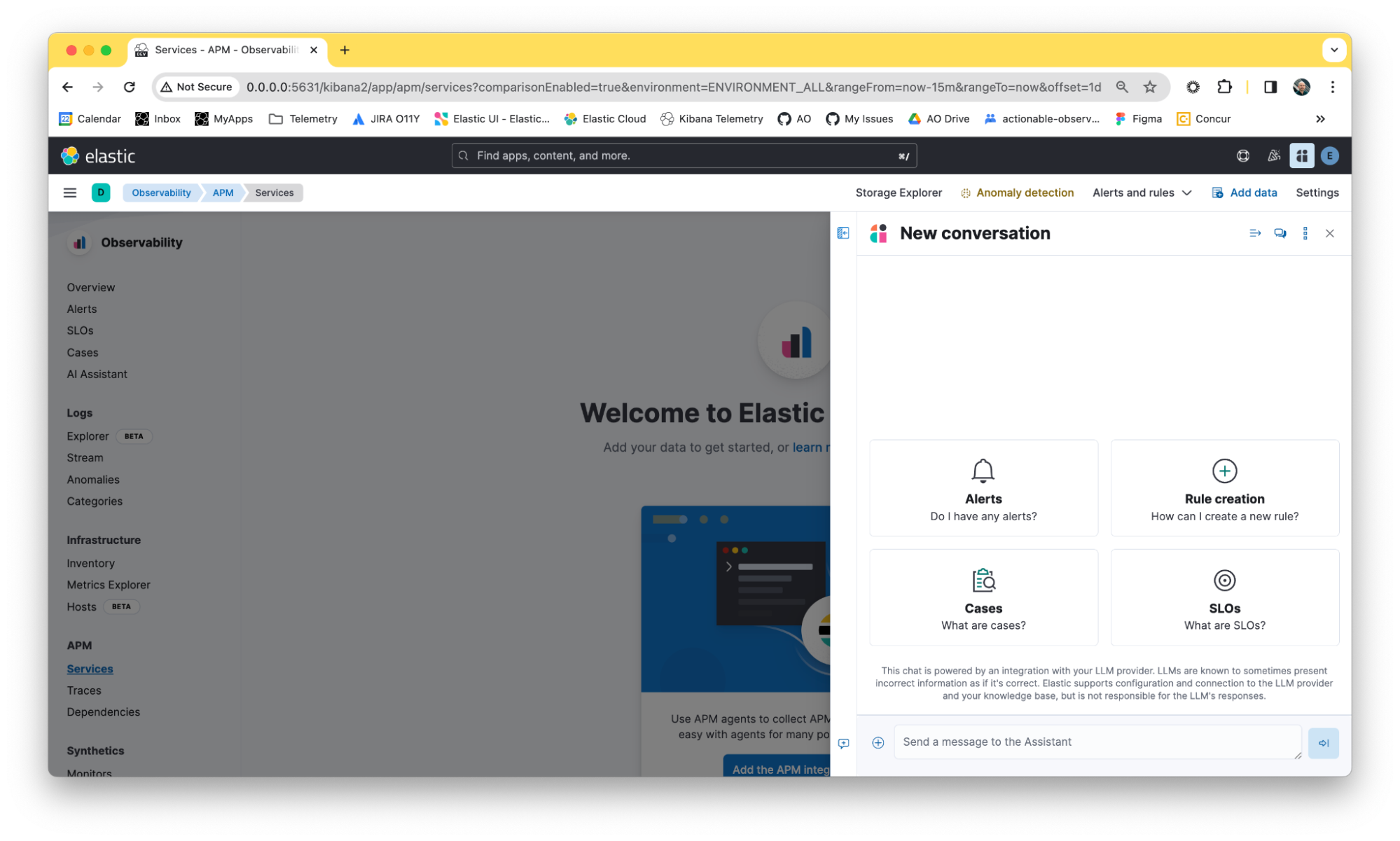
AI Assistant interactions via API calls
The Elastic AI Assistant for Observability can now be accessed through an experimental API. The API allows users to interact with the AI Assistant programmatically. Users of the API can define instructions to control the AI Assistant’s behavior and actions that can be executed client-side.
AWS Bedrock Anthropic Claude 3 model support
The updated AWS Bedrock connector is now updated to support Anthropic Claude 3. Previously, it was only able to support Claude 2.1.
Universal Profiling for .NET
Universal Profiling for .NET will now be supported alongside all major languages like PHP, Python, Java (or any JVM language), Go, Rust, C/C++, Node.js/V8, Ruby, Perl, and Zig.
This is the first of its kind in the industry (outside of Microsoft) with the ability to continuously profile .NET-on-Linux versions 6, 7, and 8 (current) without instrumentation, requiring no user configuration and working seamlessly and transparently, using an eBPF-based solution. The .NET profiler exhibits the same performance characteristics as our other language runtime profilers: low CPU overhead and memory usage.
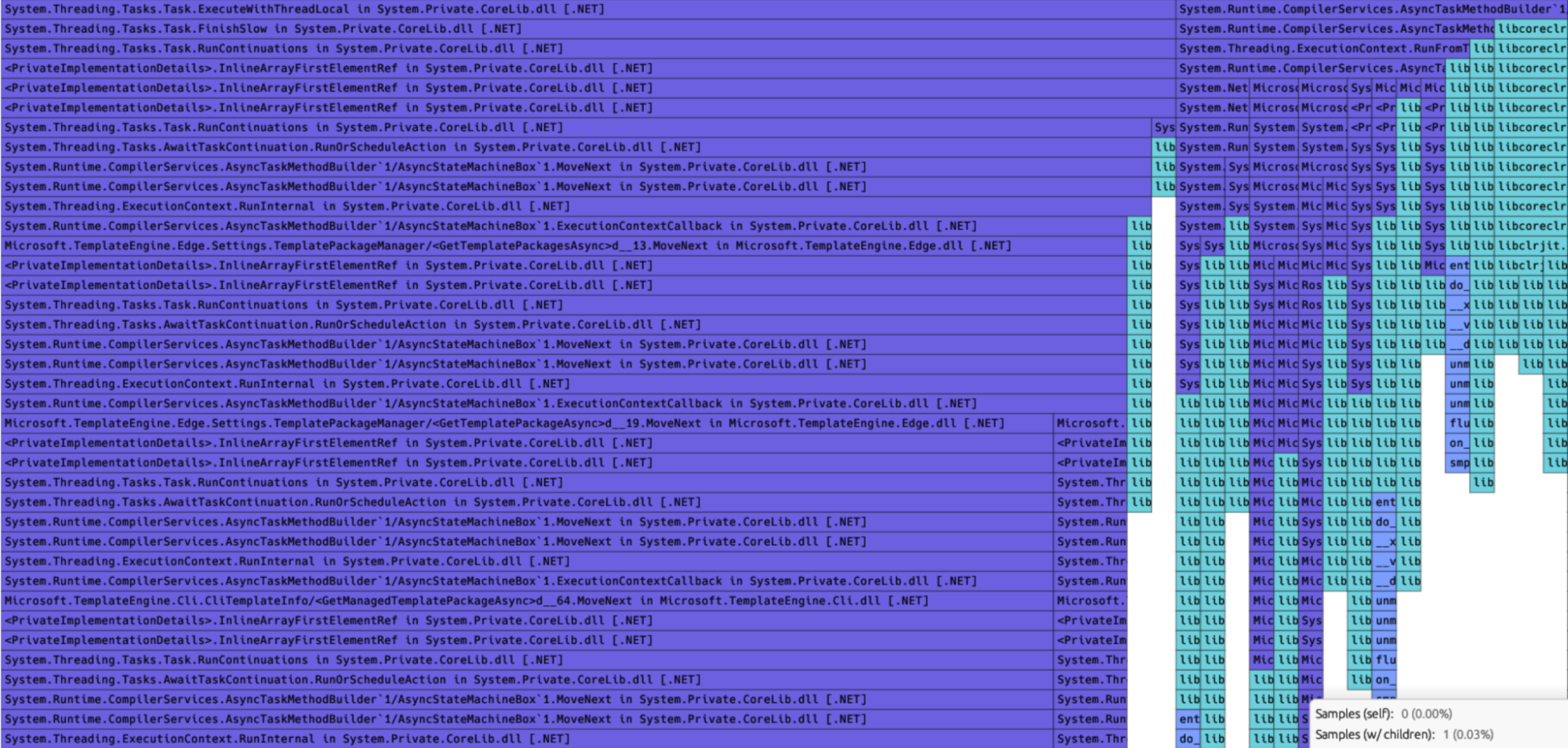
Try it out
Read about these capabilities and more in the release notes.
Existing Elastic Cloud customers can access many of these features directly from the Elastic Cloud console. Not taking advantage of Elastic on cloud? Start a free trial.
The release and timing of any features or functionality described in this post remain at Elastic's sole discretion. Any features or functionality not currently available may not be delivered on time or at all.
In this blog post, we may have used or referred to third party generative AI tools, which are owned and operated by their respective owners. Elastic does not have any control over the third party tools and we have no responsibility or liability for their content, operation or use, nor for any loss or damage that may arise from your use of such tools. Please exercise caution when using AI tools with personal, sensitive or confidential information. Any data you submit may be used for AI training or other purposes. There is no guarantee that information you provide will be kept secure or confidential. You should familiarize yourself with the privacy practices and terms of use of any generative AI tools prior to use.
Elastic, Elasticsearch, ESRE, Elasticsearch Relevance Engine and associated marks are trademarks, logos or registered trademarks of Elasticsearch N.V. in the United States and other countries. All other company and product names are trademarks, logos or registered trademarks of their respective owners.

